The Key to a Healthy Smile
Regular dental cleanings are essential for maintaining a bright, healthy smile. At our dental practice, we prioritize your oral health and offer comprehensive dental cleaning services to ensure that your teeth stay in optimal condition.
Our skilled dental hygienists use state-of-the-art equipment and techniques to remove plaque and tartar buildup from your teeth, preventing the development of gum disease and tooth decay. During your cleaning appointment, we will also thoroughly polish your teeth, leaving them feeling smooth and looking sparkling clean.
During your dental cleaning, our dentists will carefully examine your mouth for any signs of dental issues. By detecting and addressing potential problems early on, we can avoid more serious dental procedures down the line and ensure that your smile remains radiant.
We understand that visiting the dentist can be stressful for some patients. Our friendly and compassionate dental team is dedicated to creating a comfortable and relaxing environment for all our patients. We will take the time to answer any questions you may have and explain each step of the cleaning process to ensure you feel at ease.
Don’t neglect your oral health – schedule your dental cleaning appointment with us today. Our team is here to help you achieve and maintain a healthy, beautiful smile for years to come.
FAQ
Can I get a cleaning today?
Yes sure if we can accommodate you on same day. However, the dentist will first examine your gums, and the dental hygienist will examine your gum depths, to determine if we need to schedule a longer appointment for you, and also advise deep cleaning if needed.
Do you do deep cleanings?
We perform different dental cleaning therapies including prophylaxis (commonly called a “regular” cleaning), gingival scaling (for gingivitis), and scaling and root planing (commonly called “deep cleaning”).
Why can’t I do my deep cleaning in one appointment?
Usually, you have to be numbed up for a “deep cleaning” so that you are comfortable during the cleaning appointment. We can do the entire mouth in a single visit depending on your dental insurance.
I’m a new patient. Can I schedule an appointment for a cleaning?
During your first visit, we have to collect records such as x-rays, periodontal evaluation to determine the type of cleaning therapy you need, and an exam with the Dentist to determine if you have any restorative needs. If time allows, you may be able to get the cleaning on the same visit. If more time is needed to give you the proper treatment, then we will find the perfect time for you to return. Our goal is to give you the best care based on your needs.
Can I schedule my next cleaning with the same hygienist?
Yes when possible, we try to accommodate this request.
I was told I need a deep cleaning, but I don’t want to pay for it. Can I just get a regular cleaning?
Our office is dedicated to giving our patients the most optimal care. If you require more extensive therapy, that therapy will be beneficial for you long term. We pride ourselves on providing the best care and treatment options for each patient individually.
How often should I have my teeth cleaned?
The standard is visiting the dentist every 6 months for an exam and dental cleaning (if you are healthy). Some patients are required to come more frequently based on their needs such as having a periodontal disease or an accumulation of heavy plaque and tartar buildup.
What should I do to improve my overall dental health?
Practicing proper home care is the best way to prevent periodontal disease. Brushing slowly and thoroughly twice daily especially at night, flossing with string by wrapping the floss against the sides of the tooth, and incorporating a mouthwash into your daily regimen will help minimize periodontal infections.
What would you recommend for my diet?
Avoid foods that are high in sugars, refined carbohydrates, and processed foods.
Do I grind my teeth?
The most telling signs of teeth grinding include headaches, disrupted sleep, increased tooth sensitivity, TMJ discomfort, and consistent jaw, ear, or neck pain, especially right after waking up. The teeth may have clinical signs of grinding such as flattening of the chewing surface or increased recession at the gumline like wedges or notches.
How do I know if I really need a deep cleaning?
The first signs of periodontal infection are bleeding gums, gums that are sore, bad breath, or a bad taste in the mouth. We would need to complete a full periodontal evaluation to determine if a “deep cleaning” is necessary. You can also see our video explanation “When do you need deep cleaning?”
What causes you to need a deep cleaning?
Some contributing factors to periodontal disease are poor oral hygiene, smoking, diabetes, poor diet, stress, hereditary, autoimmune disorders, and crooked teeth to name a few.
What are the disadvantages of deep cleaning teeth?
The disadvantages of deep cleaning teeth can include nerve damage and potential infections if you have a compromised immune system. The cleaning might cause pain and sensitivity in the treatment areas and it doesn’t guarantee the reattachment of your gums to the teeth. The cleaning might even cause further gum recession once the swelling is reduced.
Is there a way to avoid deep cleaning?
Practicing proper home care is the best way to prevent periodontal disease. Brushing slowly and thoroughly twice daily especially at night, flossing with string by wrapping the floss against the sides of the tooth, and incorporating a mouthwash into your daily regimen will help minimize periodontal infections.
What is typically included in a deep cleaning?
During the Nonsurgical Periodontal Therapy (“deep cleaning”), hard and soft deposits are removed, the pockets are irrigated with an antimicrobial agent and fluoride is applied to the teeth. The patient will also go home with a bottle of antimicrobial mouthwash and sensitive toothpaste. Following the hygienist’s recommendations and post-op instructions is imperative for healing during the first few weeks after the procedure.
How long does it take for gums to reattach after deep cleaning?
On average, it takes about 5 – 7 days for your gums to heal after deep cleaning. During this period, it’s possible to experience minor gum soreness, swelling, and tooth sensitivity.
Can teeth become loose after deep cleaning?
Teeth become loose if the foundation or bone is compromised. Bacteria, plaque tartar, and some systemic diseases such as diabetes and autoimmune diseases can contribute to bone loss. Sometimes there is an excessive amount of tartar buildup that may appear to be stabilizing the teeth but once removed, the teeth can seem to be more mobile and may need further evaluation from the dentist.
Why are my gums so sore and sensitive all of a sudden?
Sore gums can be a sign that you brush your teeth too hard. Other times, braces or dentures can irritate your gums. Hormone changes related to your period, pregnancy, or menopause can also lead to swollen, painful gums. Gum pain can be a sign of a more serious problem like gum disease.
Why is my tooth sensitive to hot and cold?
Sensitivity to hot and cold foods is often a warning sign that a cavity is forming and that it’s time to make an appointment to see your dentist.
How much is an exam?
Our dentist can examine all of your teeth and gum health for $99.














